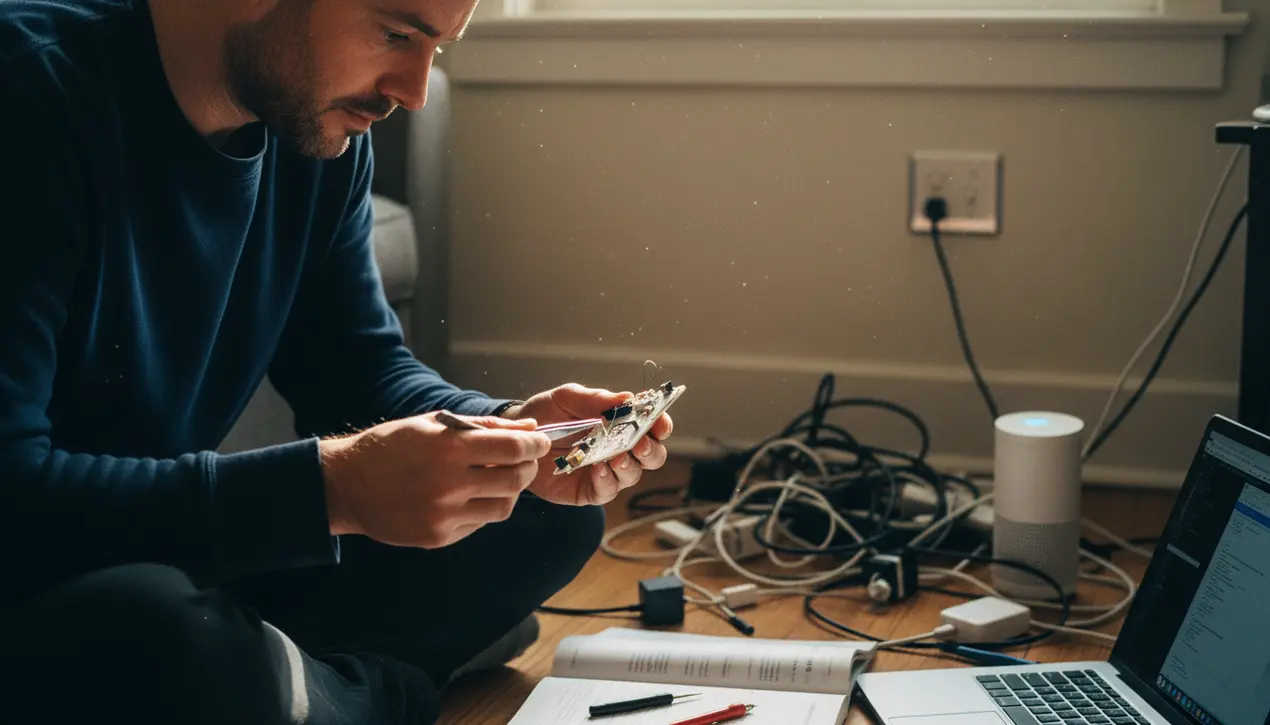
AInlp & speechChatbots and Voice Assistants
I Ditched Alexa and Upgraded My Smart Home
AN
Andrew Blake
2 hours ago7 min read1 comments
I Ditched Alexa and Upgraded My Smart Home, and the journey felt less like a tech upgrade and more like a philosophical awakening, a quiet rebellion against the convenience-at-all-costs model that has come to define our digital lives. For years, my smart home was a patchwork of cloud-dependent gadgets—a Nest thermostat here, a Ring doorbell there, all orchestrated by the ever-listening, occasionally uncomprehending Alexa in the corner.The initial promise was seductive: a home that anticipated my needs, a seamless symphony of lights, climate, and security. But the reality, as any veteran of this particular digital frontier knows, devolved into a low-grade chronic headache.The dreaded 'device is unresponsive' notification became a daily ritual, a stark reminder that my domestic tranquility was held hostage by the health of an Amazon Web Services server farm hundreds of miles away. A simple command to turn on the hallway light would sometimes hang in the digital ether for a full ten seconds before either complying or giving up entirely, a lag that felt like an eternity in the context of modern instant gratification.This wasn't smart living; it was dumb waiting. The final straw was a multi-hour outage that left the house in a digital stone age, the lights frozen, the thermostat dumb, and me fumbling for physical switches I'd nearly forgotten how to use.It was in that moment of frustration that I realized my home's intelligence wasn't actually in my home; it was on loan from a corporation, and the terms of that loan were increasingly untenable. So, I embarked on a migration to a local-first ecosystem, a move that felt akin to switching from a rented apartment to owning your own land.The heart of this new system is a platform called Home Assistant, an open-source hub that runs everything locally on a small, always-on computer—in my case, a Raspberry Pi tucked away in a closet. The setup requires a bit more technical legwork than unboxing an Echo; it’s a weekend project involving flashing software onto an SD card and meticulously re-pairing each smart device, from the Zigbee light bulbs to the Z-Wave door sensors.But the payoff is a sovereignty that is profoundly liberating. My commands are now processed within my own four walls, with near-instantaneous response times.The automation routines I've built—like having the porch lights gradually brighten at sunset and the living room lamps turn a warm amber at 9 PM—are now robust and reliable, executing with a clockwork precision that was previously unimaginable. This shift away from the cloud isn't just about speed and reliability; it's a fundamental recalibration of privacy and control.With Alexa, a fragment of every uttered word was whisked away to be analyzed and monetized, a fact we often accept with a resigned shrug. In my new local setup, my voice commands are processed locally by a completely offline system; the data never leaves the house.It’s the difference between having a confidential butler and a concierge who takes detailed notes on your every whim and sells them to the highest bidder. The broader context here is a growing, if still niche, movement towards digital self-reliance, a sentiment echoing the early days of the personal computer revolution when users built their own machines and understood their inner workings.Companies like Apple and Google have built walled gardens of effortless integration, but the trade-off is a loss of agency. The local-first smart home is the antithesis of this—it’s a bespoke suit versus off-the-rack fast fashion.It requires a willingness to get your hands digitally dirty, to troubleshoot a faulty integration or write a line of simple code for a custom automation, but the reward is a home that is truly, authentically yours. It’s not for everyone, but for those feeling the strain of cloud dependency, it’s an upgrade that goes far beyond mere convenience—it’s a reclaiming of dominion over one's own digital domain.
#featured
#smart home
#voice assistants
#cloud computing
#home automation
#Alexa
#local control
#IoT devices
Stay Informed. Act Smarter.
Get weekly highlights, major headlines, and expert insights — then put your knowledge to work in our live prediction markets.
Comments
Loading comments...
© 2025 Outpoll Service LTD. All rights reserved.